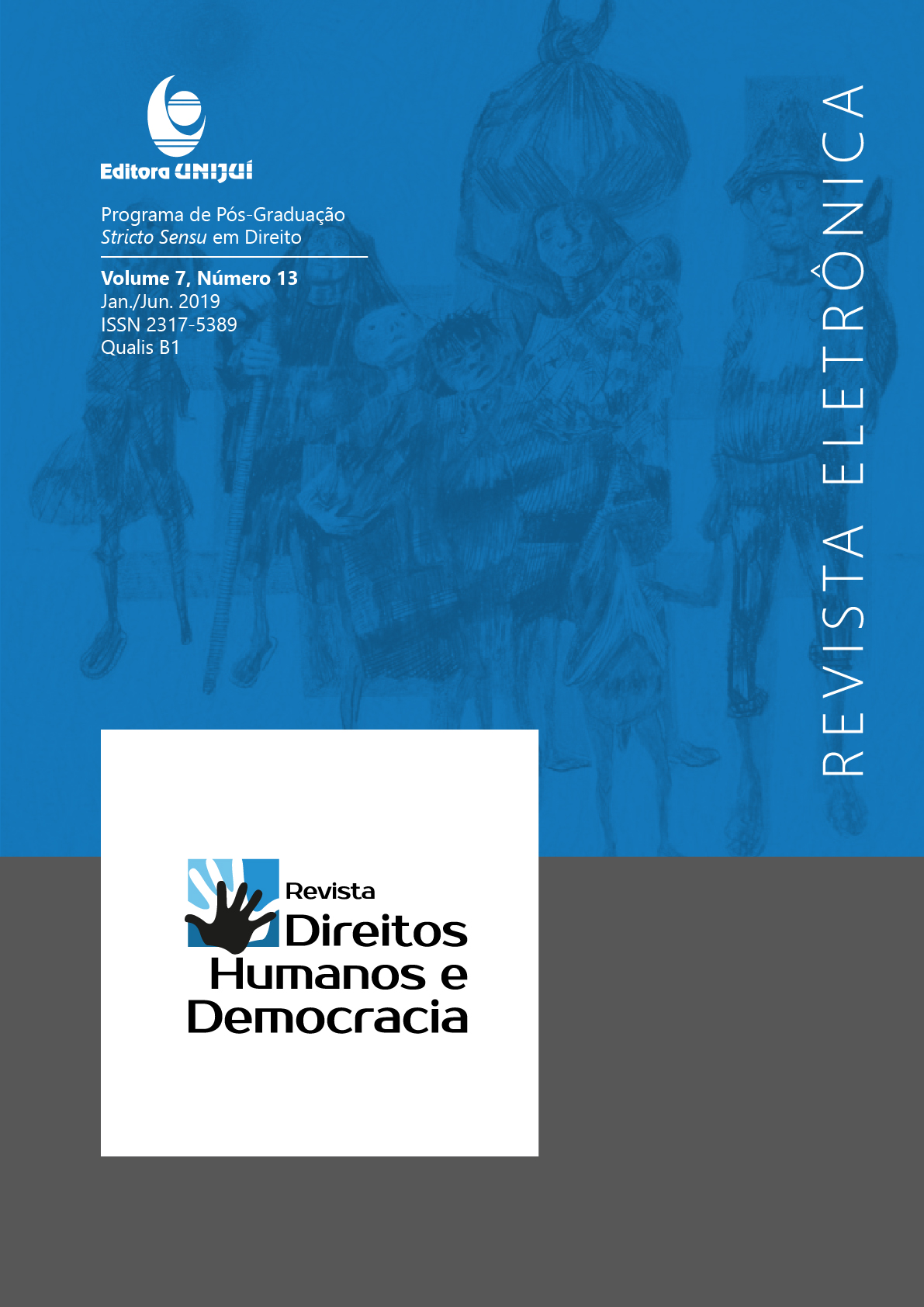O CONTROLE DE CONVENCIONALIDADE NA RELAÇÃO INTERSISTÊMICA ENTRE O SISTEMA INTERAMERICANO DE DIREITOS HUMANOS E OS SISTEMAS NACIONAIS DE DIREITOS HUMANOS – DESAFIOS EM CENÁRIOS DE INTERSEÇÕES VARIADAS
DOI:
https://doi.org/10.21527/2317-5389.2019.13.106-128Abstract
O presente artigo insere-se no campo de estudo dos direitos humanos, focando-se na aplicação do controle de convencionalidade por parte da Corte Interamericana de Direitos Humanos e dos tribunais internos do Estados-membro do Sistema Interamericano de Direitos Humanos. Seu objetivo principal é a análise dos desafios para a implementação de tal controle em um cenário de interação intersistêmica. Quanto à metodologia, a análise é desenvolvida inicialmente por meio de uma abordagem linguística das definições de certos termos de direitos humanos por parte da doutrina internacional, prosseguindo para uma abordagem histórico-jurídica da consolidação do Sistema Interamericano de Direitos Humanos e da Corte Interamericana de Direitos Humanos. Em sequência, são feitas considerações sobre possíveis resultados da relação intersistêmica entre o contexto regional e nacional quanto à aplicação do controle de convencionalidade, apontando os níveis de interseção existentes entre os distintos sistemas. Desse estudo resulta as conclusões no sentido dos desafios para a efetiva aplicação do controle de convencionalidade por parte dos tribunais internos dos Estados americanos e de caminhos possíveis para o incremento do diálogo intersistêmico.
Palavras-chave: Sistema Interamericano de Direitos Humanos. Corte Interamericana de Direitos Humanos. Controle de Convencionalidade. Relação Intersistêmica. Interseções.
Downloads
Published
How to Cite
Issue
Section
License
By publishing in the Revista Direitos Humanos e Democracia, authors agree to the following terms:
Articles are licensed under the Creative Commons Atribuição 4.0 Internacional (CC BY 4.0), which allows:
Share — copy and redistribute the material in any medium or format;
Adapt — remix, transform, and build upon the material for any purpose, including commercial use.
These permissions are irrevocable, provided the following terms are respected:
Attribution — authors must be properly credited, with a link to the license and indication of any modifications made;
No additional restrictions — no legal or technological measures may be applied that restrict the use permitted by the license.
Notices:
The license does not apply to elements in the public domain or covered by legal exceptions.
The license does not grant all rights required for specific uses (e.g., image rights, privacy, or moral rights).
The journal is not responsible for opinions expressed in the articles, which remain the sole responsibility of the authors. The Editor, with the support of the Editorial Committee, reserves the right to suggest or request modifications when necessary.
Only original scientific articles presenting research results of interest, not previously published or simultaneously submitted to another journal with the same purpose, will be accepted.
References to trademarks or specific products are intended solely for identification purposes and do not imply any promotional endorsement by the authors or the journal.
License Agreement: Authors retain copyright over their articles and grant the Revista Direitos Humanos e Democracia the right of first publication.













